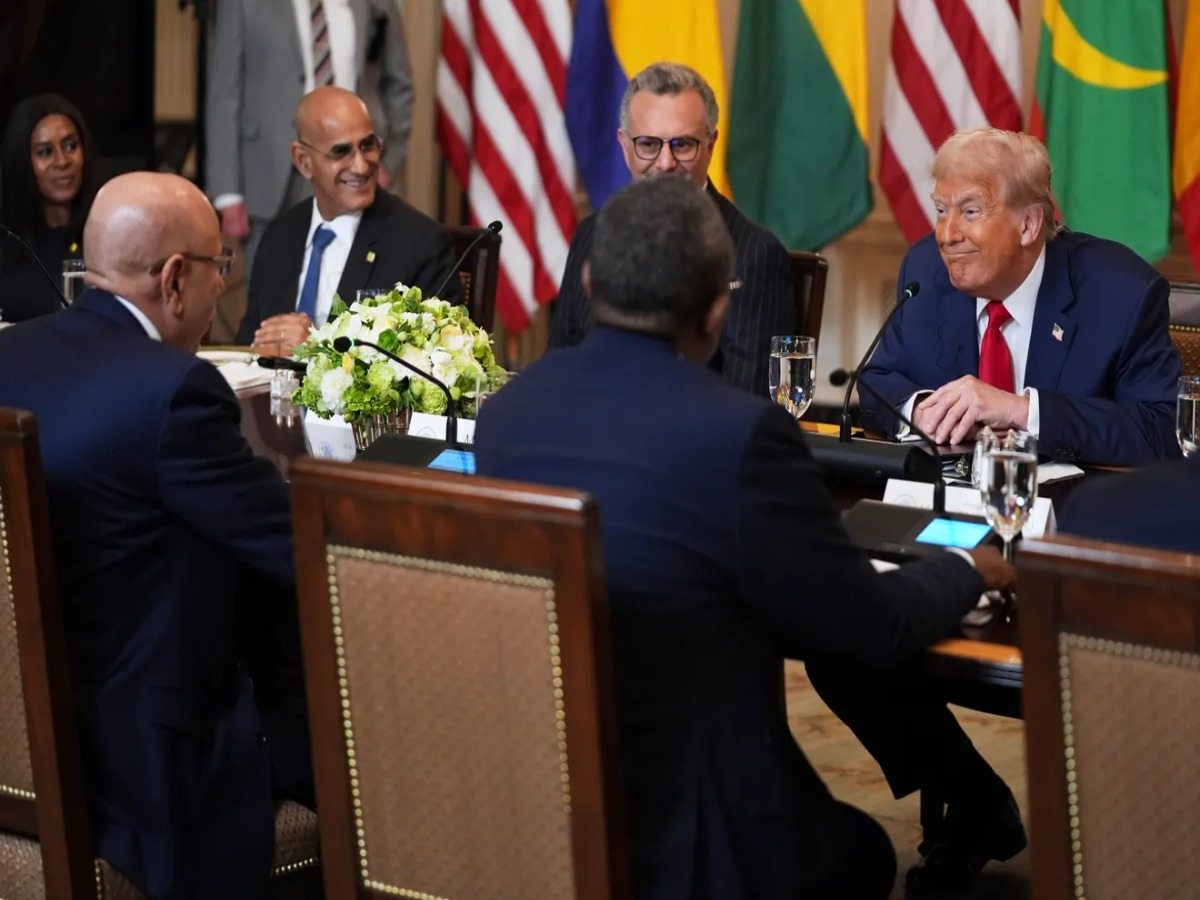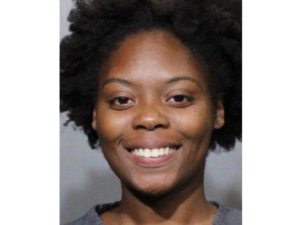A seemingly offhand remark by U.S. President Donald Trump has sparked backlash in Liberia, where many viewed his comments as patronizing rather than complimentary. During a meeting with West African leaders at the White House on Wednesday, Trump appeared surprised by Liberian President Joseph Boakai’s fluency in English, despite the language being Liberia’s official tongue for over two centuries.
“Such good English,” Trump said, addressing Boakai directly. “Such beautiful English.” The U.S. president went on to ask where Boakai had learned to speak “so beautifully,” before adding, “Where were you educated? Where? In Liberia?”
The exchange was met with swift reactions back in Liberia, where English is not just widely spoken but deeply embedded in the country’s identity and history. Liberia, founded in the 1800s by freed American slaves, has long held strong cultural and political ties to the United States. Its flag mirrors the Stars and Stripes, its political structure is modeled on that of the U.S, and many of its institutions carry the hallmarks of American influence.
READ ALSO: Not just a visit: Why Trump is hosting five African leaders at the White House
While Boakai’s administration publicly dismissed any offense, others across Liberia bristled at what they interpreted as Trump’s condescending tone.
Watch a recent episode of The BreakDown podcast below and subscribe to our channel PanaGenius TV for latest episodes.
“President Trump was condescending, he was very disrespectful to the African leader,” said Foday Massaquio, head of the opposition Congress for Democratic Change-Council of Patriots. “It proves that the West is not taking us seriously as Africans.”
That sentiment was echoed on social media and in political circles, where many felt the remarks reflected a deeper ignorance about Liberia’s identity and a growing disregard for the country’s longstanding alliance with the U.S.
Foreign Minister Sara Beysolow Nyanti attempted to downplay the controversy, writing on X that Trump’s comment was simply a recognition of Liberia’s “American-rooted accent,” and added, “No offense was taken.” She emphasized the country’s commitment to maintaining strong bilateral ties “built on mutual respect, shared values, and meaningful partnership.”
However, the moment came amid simmering discontent over U.S. policy shifts that have already shaken confidence in the relationship. Earlier this month, the dissolution of the U.S. Agency for International Development (USAID) stunned Liberians, who had believed their historic connection with the U.S. would shield them from aid cuts. According to the Center for Global Development, U.S. support had accounted for nearly 2.6% of Liberia’s gross national income, the highest such figure globally.
For many, Trump’s words felt like salt in the wound.
READ ALSO: Supreme Court backs Trump’s federal job cuts plan despite warnings of service collapse
“Liberia is a long-standing friend of the USA, therefore Trump should have understood that we speak English as an official language,” said Monrovia-based businessman Moses Dennis.
Others, like Siokin Civicus Barsi-Giah, an ally of former President George Weah, also challenged Trump’s apparent surprise. “Liberia is an English-speaking country,” he said. “Former slaves and slave owners decided to organize themselves to let go of many people who were in slavery in the United States of America, and they landed on these shores now called the Republic of Liberia.” He called Trump’s remarks “condescending and ridiculing,” adding, “Joseph Boakai was not praised. He was mocked by the greatest president in the world.”
However, not everyone viewed the comments as dismissive. Abraham Julian Wennah, a researcher at the African Methodist Episcopal University, offered a different take. “To some, the comment may carry a whiff of condescension, echoing a long-standing Western tendency to express surprise when African leaders display intellectual fluency,” he said. “But if one looks at Trump’s rhetorical style, the remarks were an acknowledgment of Boakai’s polish, intellect, and readiness for global engagement.”
In Washington, the White House declined to confirm whether Trump knew English was Liberia’s official language, according to AP’s report. Massad Boulos, Trump’s senior adviser for Africa, insisted the comments were well-received. “President Trump actually complimented the language skills of the Liberian president,” Boulos said, adding that the meeting participants were “deeply appreciative” of Trump’s engagement.
READ ALSO: Here’s how the U.S. aid cuts are leaving Liberia’s health system and women in crisis










